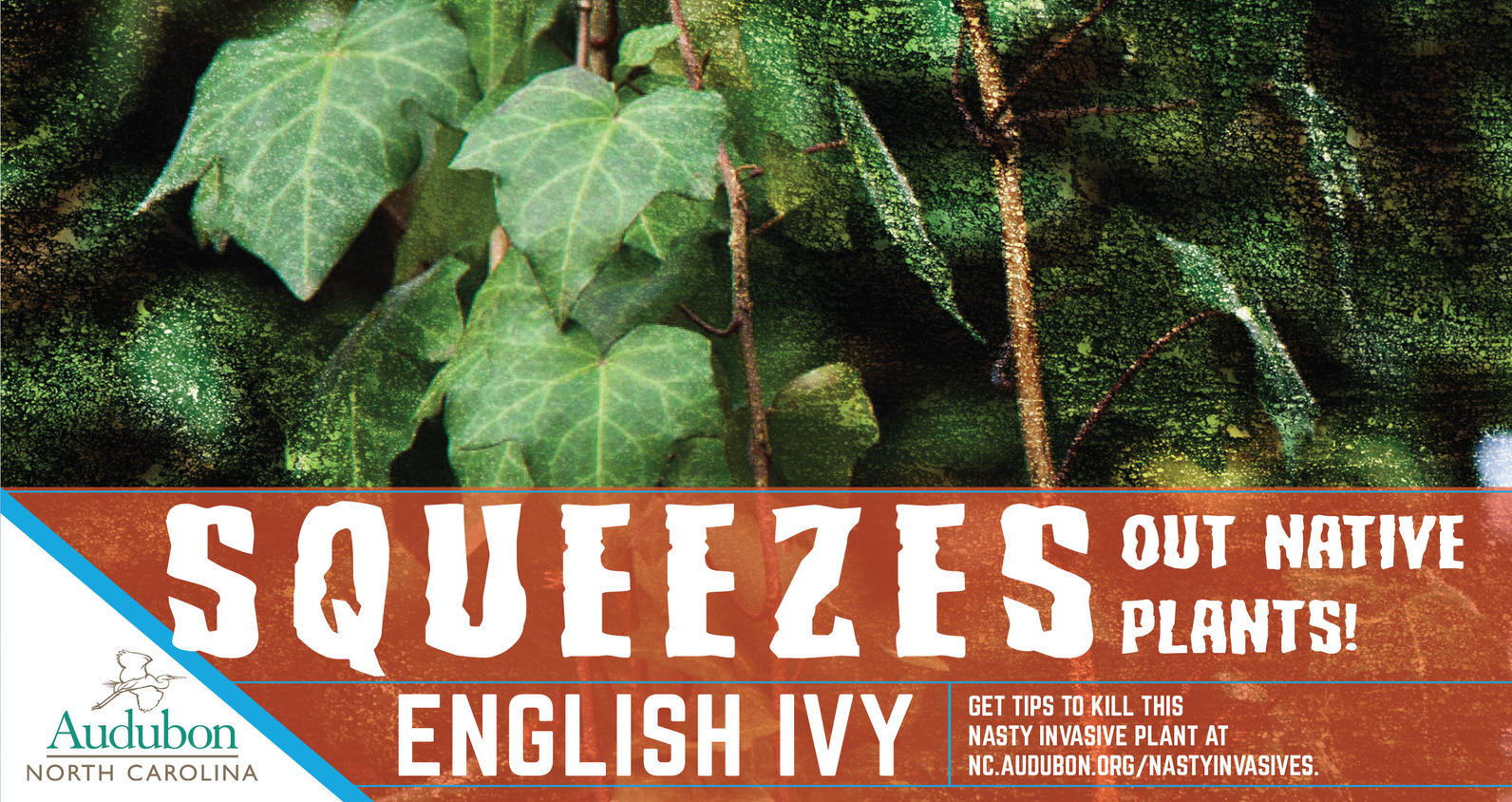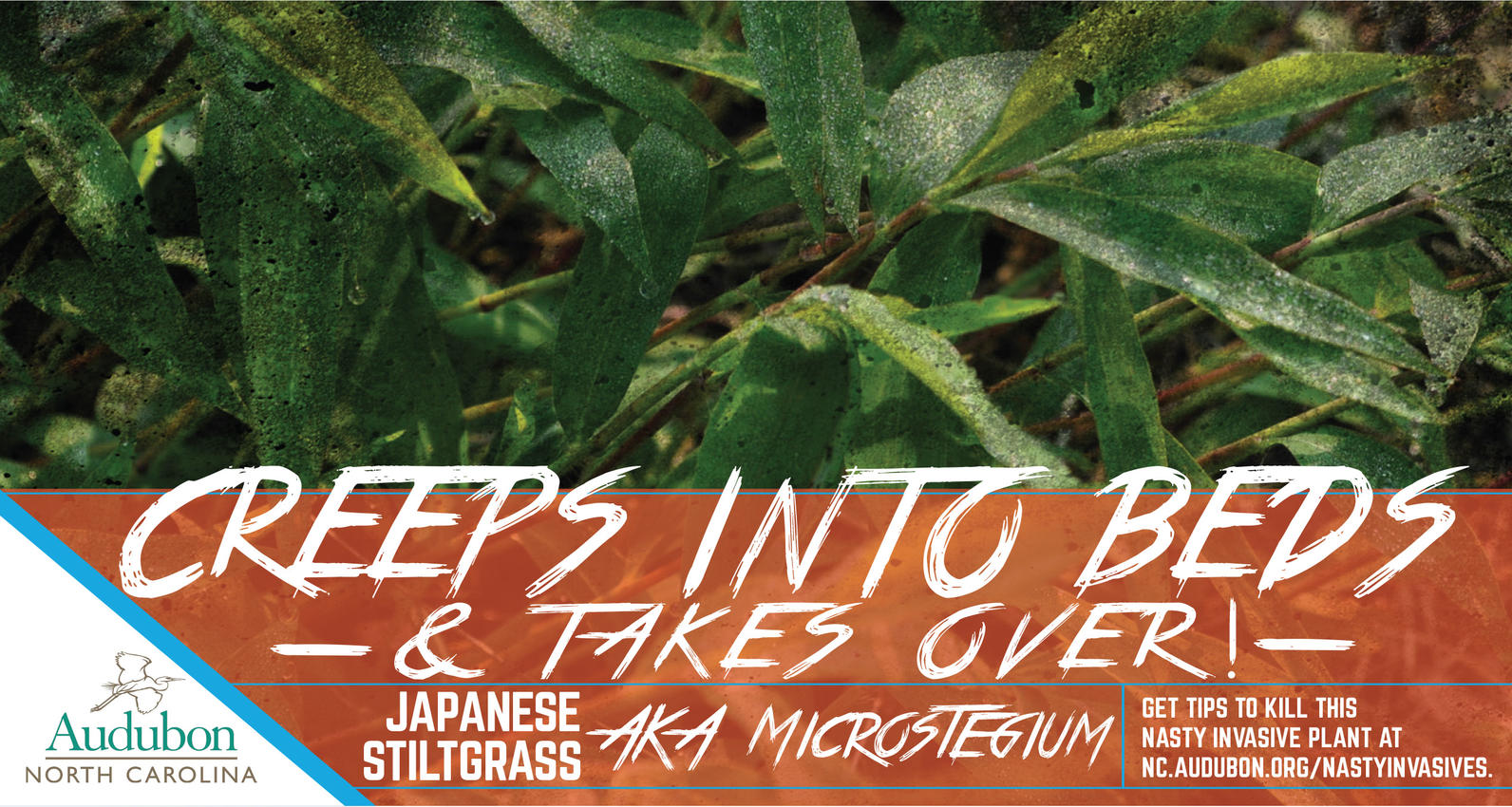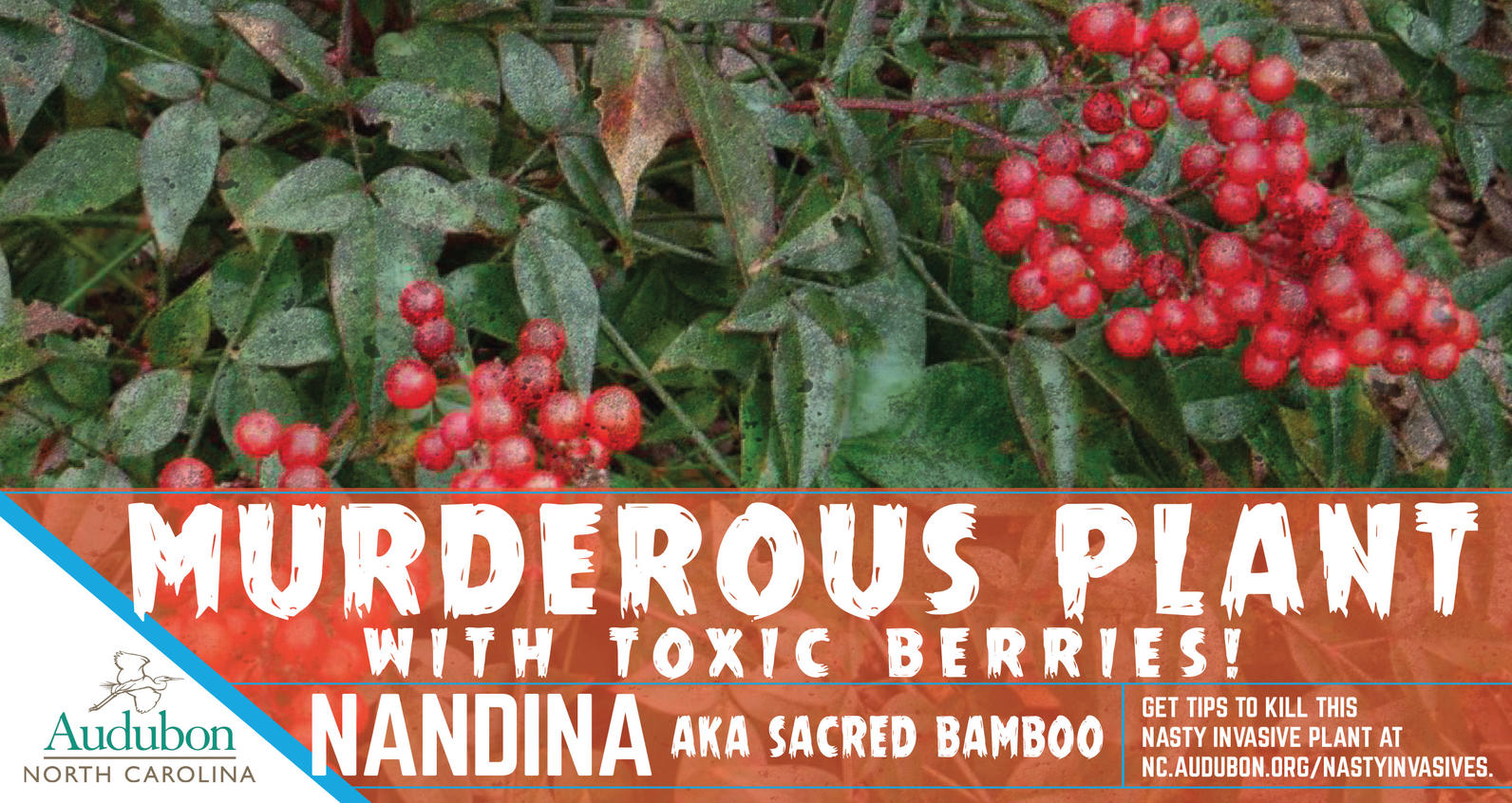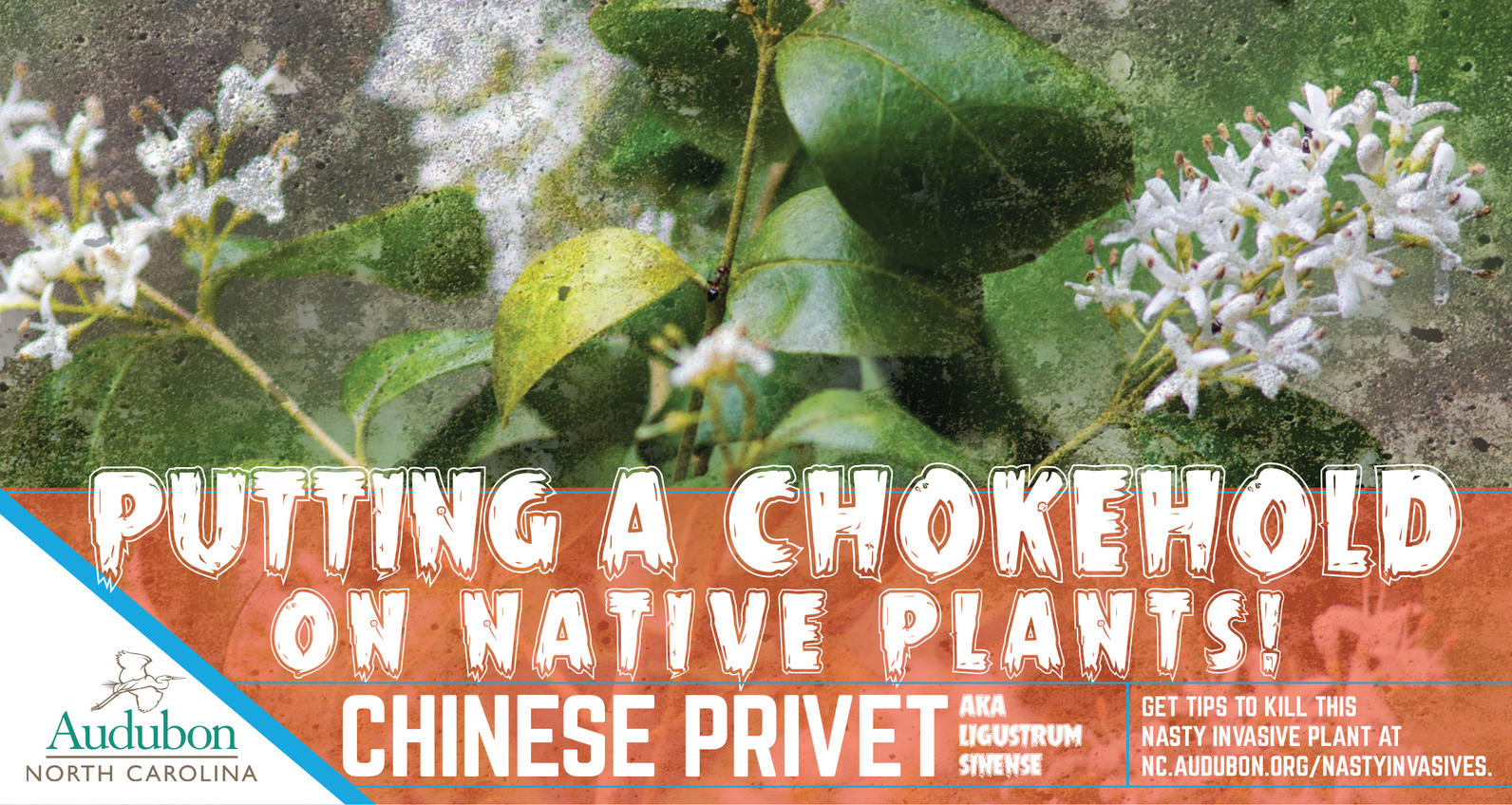There are monster plants in your yard and you might not even know it!
Invasive plants take over valuable ground space but also drain resources like water, nutrients and block sunlight from the plants you want to help thrive. Removing invasive plants is especially important if you are trying to create a bird-friendly backyard.
This Halloween, go on an invasive plant hunt and eliminate these nasty plants from your yard.
1. English Ivy – While this plant might be perfect for overtaking Ivy League schools, it’s the scourge of backyards. This plant can quickly take over a planting bed literally squeezing out native plants by covering them with vines and sucking up valuable water and nutrients.
HOW TO KILL IT: Pull down vines, cut back the plant, and then apply concentrated systemic herbicide to the living cut surfaces so it can draw the herbicide down to the roots. An effective chemical-free method is to mow or weed-whack to the ground several times and pull what’s left by hand.

2. Japanese Stiltgrass AKA Microstegium– This is an up-and-coming invasive plant for North Carolina, and boy has it had a productive growing season this year. Stiltgrass can quickly take root and take over a vast area in one season. The seeds have been known to germinate for up to five years, so make sure to kill yours before it sets seeds!
HOW TO KILL IT: Since it has shallow roots, you can pull it by hand before it seeds. Use of herbicides will also kill this bad guy.
NATIVE PLANT ALTERNATIVES: English Ivy is difficult to tame, and leaving bare dirt will allow Stiltgrass to move right in again. Native groundcovers like Green and Gold; Creeping, Eastern, and Trailing phlox are great alternatives. Add in perennials like Coreopsis, Black-eyed Susan, Goldenrod and Purple Coneflower too.

3. Ugly Agnus AKA Autumn Olive or Eleagnus – With a name like Ugly Agnus, you have to know it is a villainous monster. This bushy foe is a non-native plant that produces bright red berries in fall. Don’t be fooled by this brilliant byproduct, these berries are full of sugar and will not sustain wildlife. Even worse, animals and birds disperse the seeds, widening its area of invasion. Exterminate this bush, immediately.
HOW TO KILL IT: This is a zombie plant, often returning from the dead after cutting or burning. Dig it out and make sure to get all the roots or cut back the bush and then apply herbicides to the stump.
4. Nandina AKA Sacred Bamboo – This plant is murderous, literally. The berries on this evergreen shrub can be toxic to birds, cats and grazing animals. While it might be pretty in the fall and flower in the spring, eliminate this killer plant.
HOW TO KILL IT: If it does set berries, remove them all before animals can eat them. To kill the entire plant, dig it up by the roots, make sure to get all the suckers. Or spray mature heavenly bamboo with all stems and leaves.

5. Chinese Privet AKA Ligustrum sinense – This plant is putting a chokehold on native plants in North Carolina. Chinese privet shades out all herbaceous plants, hoarding the sunlight for itself. It has already invaded thousands of acres in our state.
HOW TO KILL IT: Mowing it down, cutting or plowing will only encourage more growth. The most effective way to kill it for good is to cut back the bush and then apply glyphosate herbicides to the stump so it will pull the herbicide into the roots.
NATIVE PLANT ALTERNATIVES: To get rid of Eleagnus, Nandina and Privet for good, berry-producing shrubs and small trees are a bird-friendly alternative. Try planting Blueberry, Fringe Tree, American Beautyberry, Downy Serviceberry and Spicebush; and be sure to check the sizes to make sure you have enough space for these plants to grow.

These are not the only monsters lurking in your yard. Check out these resources to find more invasive plants to seek and destroy.
- NC Invasive Plant Council - nc-ipc.weebly.com/
- NC Native Plant Society – they do a great job of maintaining the ranked lists of invasives for NC - ncwildflower.org/plant_galleries/invasives_list
- NC Botanical Garden – PDF guide to controlling invasive plants - ncbg.unc.edu/invasive-plants-resources/
- NC State - ncsu.edu/goingnative/whygo/invspec.html
All hope is not lost! Fall is the perfect time to get your bird-friendly native plants in the ground. Visit a local Bird-Friendly Native Plants of the Year retailer through Thanksgiving to purchase a few new additions for your yard.



